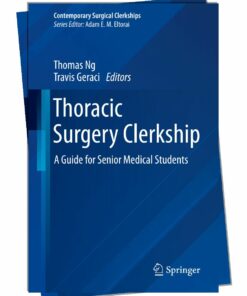Comprehensive Guide to Surgical Treatment of Inflammatory Bowel Disease 2024
Explore the comprehensive guide to the surgical treatment of inflammatory bowel disease (IBD), including Crohn’s disease, ulcerative colitis, and intestinal cancer. Learn about cutting-edge surgical techniques and case studies from the leading experts in IBD surgery.
Table of Contents
- Overview of Surgical Interventions for Inflammatory Bowel Disease
- Surgical Techniques for Crohn’s Disease
- Jejunoileitis and Obstruction
- Ileocolitis and Fistula Management
- Surgical Treatment of Ulcerative Colitis
- Severe and Intractable Ulcerative Colitis
- Indeterminate Colitis and Surgical Management
- Intestinal Cancer and Inflammatory Bowel Disease
- Colorectal Cancer in Ulcerative Colitis
- Intestinal Cancer in Crohn’s Disease
In the field of inflammatory bowel disease (IBD), surgical intervention is often a necessary step when medical management fails. This article covers the surgical treatment of Crohn’s disease, ulcerative colitis, and intestinal cancer associated with IBD. With contributions from leading experts in gastrointestinal surgery, this guide serves as a comprehensive resource for healthcare professionals and patients alike.
Overview of Surgical Interventions for Inflammatory Bowel Disease
Surgical approaches for IBD vary depending on the severity and complications of the disease. Crohn’s disease surgery often involves addressing strictures, fistulas, and obstructions, while ulcerative colitis surgery may require the removal of the colon and rectum in severe cases. Additionally, patients with long-standing IBD are at higher risk for intestinal cancer, necessitating preventive or curative surgical interventions.
Surgical Techniques for Crohn’s Disease
Crohn’s disease can affect any part of the gastrointestinal tract, but surgery is most commonly performed on the small intestine and colon. Below are key surgical techniques used in treating Crohn’s-related complications.
Jejunoileitis and Obstruction
Jejunoileitis, inflammation of the jejunum and ileum, often leads to obstruction. Surgical management includes resection or stricturoplasty to relieve the obstruction and prevent further complications. In cases of ileosigmoid fistulas, surgery aims to repair the fistula and prevent recurrence.
Ileocolitis and Fistula Management
Ileocolitis, inflammation of the ileum and colon, is frequently complicated by fistula formation. Surgical interventions focus on closing fistulas and removing diseased bowel segments. In more complex cases, multiple surgeries may be required to manage recurrent fistulas and associated complications.
Surgical Treatment of Ulcerative Colitis
Unlike Crohn’s disease, ulcerative colitis affects only the colon and rectum. In severe or intractable ulcerative colitis, surgery becomes the only option for relief.
Severe and Intractable Ulcerative Colitis
In cases of severe ulcerative colitis, where medical therapies fail, surgery such as colectomy or proctocolectomy is performed. These procedures may include creating an ileal pouch-anal anastomosis (IPAA) to maintain bowel function.
Indeterminate Colitis and Surgical Management
Indeterminate colitis presents characteristics of both Crohn’s disease and ulcerative colitis. Surgical management is complex due to the overlapping features. Surgeons must carefully assess whether the disease behaves more like Crohn’s or ulcerative colitis to determine the best course of action.
Intestinal Cancer and Inflammatory Bowel Disease
Patients with long-standing IBD, especially those with ulcerative colitis or Crohn’s disease, have an increased risk of developing intestinal cancer. Surgical intervention is often required either as a preventive measure or to remove cancerous tissues.
Colorectal Cancer in Ulcerative Colitis
Colorectal cancer is a major concern for patients with ulcerative colitis, particularly those with pancolitis or long-standing disease. Surgery involves removing the colon and rectum, sometimes with the creation of a J-pouch to preserve continence.
Intestinal Cancer in Crohn’s Disease
Intestinal cancer in Crohn’s disease is less common but can occur in the small intestine or colon. Surgical management typically involves resection of the affected bowel segments, often requiring follow-up surgeries to manage recurrence.
Conclusion
View more: Dental Books on google.com
The “Atlas of Surgical Treatment of Inflammatory Bowel Disease” provides an in-depth look at the complexities of managing Crohn’s disease, ulcerative colitis, and their associated complications. Through detailed case studies and expert insights, this guide offers valuable knowledge for surgeons and healthcare providers dealing with IBD. Whether facing jejunoileitis, ileocolitis, or intestinal cancer, understanding these surgical techniques is crucial for improving patient outcomes.
Be the first to review “Comprehensive Guide to Surgical Treatment of Inflammatory Bowel Disease 2024” Cancel reply
Related products
Medical Ebook And Video Course
Thoracic Surgery Clerkship: A Guide for Senior Medical Students
Medical Ebook And Video Course
Pediatric Psychopharmacology for Primary Care (4th Edition): A Comprehensive Review
Medical Ebook And Video Course
A Review of Precision Medicine: Where Are We and Where Are We Going?
Medical Ebook And Video Course
Ischemic Heart Disease: From Diagnosis to Treatment – A Comprehensive Review
Medical Ebook And Video Course
Medical Ebook And Video Course
How to Read a Paper: The Basics of Evidence-Based Healthcare, 7th Edition – A Review and Evaluation
Medical Ebook And Video Course
Future of AI in Medical Imaging: A Comprehensive Review and Evaluation
Medical Ebook And Video Course
Taking Control of Your Seizures Workbook: A Comprehensive Review













Reviews
There are no reviews yet.